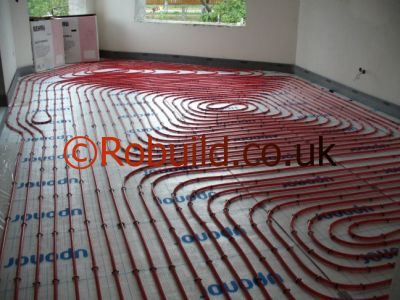There are few types of plastics are used for pipe work and it is important to know the correct type and size for the plumbing job in question. However, there are professional plumbers who would avoid using plastic pipes. Also there are some plumbing jobs when copper tubing, cast iron pipes, etc is required and plastic pipes are not suitable.
Plastic pipes are suitable for most water application in a plumbing or central heating system. Plastic pipes can be made of polythene, polypropylene, polyvinyl chloride (pvc) and acrylonitrile butadiene styrene (abs) and there are different types within some of the groups. Polythene (or polyethylene) pipes are available in two forms—low density polythene and high density polythene. The latter is more rigid and can be subjected to marginally higher temperatures, but neither is suitable for carrying hot water. Low density polythen pipes larger than 50mm (2in) in diameter must not be used below ground as their softness would result in the pipe being crushed by the surrounding earth.
Small diameter polythene pipe can be obtained in long coils which considerably reduces the number of joints required in any pipe run, ideal for underfloor heating.

Pvc (polyvinyl chloride) is used for the majority of soil pipes and drainage pipes as well
as some waste pipes and normal cold-water pipes. Again, two basic types are available rigid or unplasticized pvc (upvc) and flexible or plasticized pvc.

The former is generally used but neither type is really suitable for waste pipes that have to pass very hot water from washing machines and dishwashers. A special high temperature pvc has been developed, however, which is perfectly suited for hot water systems.
Abs (acrylonitrile butadiene styrene) and polypropylene are both plastics with a relatively high softening point and both can be used successfully for hot-water waste systems.
